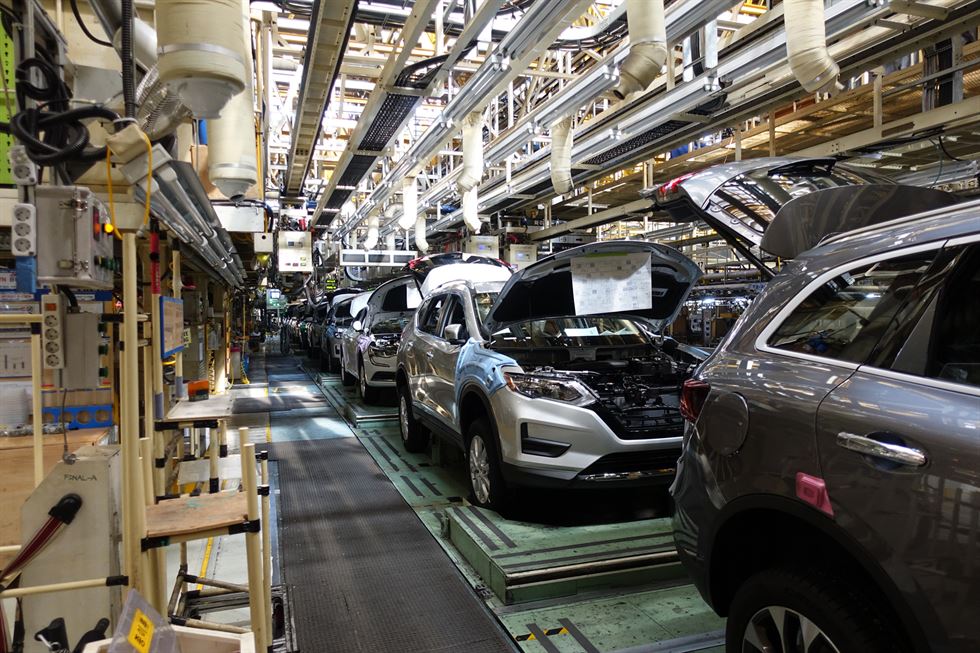JANUARY 8, 2024
Five trends that will define Nigeria’s auto industry in 2024

Due to its underdeveloped state, Nigeria's automotive industry is largely dependent on the importation of new and used automobiles, as well as vehicle spare parts. Nigeria's automobile industry faces significant obstacles to growth as it is an import-dependent industry, such as fluctuations in the naira to dollar exchange rate, the exchange rate at the port for clearing cargo, and rising inflation. Thus, we examine the trends that will shape the industry in 2024 so that players can plan ahead to overcome these obstacles and get ready to seize the opportunities the sector will offer in the coming year.
These include pricing, FX rates and inflation, the increase in demand for electric vehicles, and a surge in demand for sedans.
Demand for vehicles that use less fuel.
Nowadays, fuel efficiency is a top priority for all Nigerian car buyers, particularly since petrol is becoming increasingly expensive for the underprivileged.Nigerians are now more cautious, particularly when it comes to the fuel consumption of the car they plan to purchase, after the Federal Government eliminated the petrol subsidy in 2023. This caused the pump price to rise from N195 to over N637.
This means that, even in 2024, a car's economy and fuel efficiency will still be important considerations when making a purchase.
Rise in demand for sedans.
In 2024, used sedan demand is expected to soar in the country's used car market.Compared to sport utility vehicles (SUVs) and multipurpose vehicles (MPVs), sedans are more economical and fuel-efficient.
According to Maxim Makarchuk, COO of Cars45, who provided an outlook for the Nigerian auto industry in 2024, more Nigerians will favour sedans over MPVs and SUVs due to their lower cost.
According to a report by Mordor Intelligence, one major factor driving up demand for used sedans in Nigeria is the increase in petrol pump prices.
Rise in demand for EVs
A further trend that is expected to become significant in Nigeria's automotive industry by 2024 is the growing popularity of electric vehicles (EVs).The rate at which EVs are being adopted and used worldwide is rising, to the point where countries are now giving infrastructure—such as public charging stations—more thought in order to facilitate the use of EVs.
Nigeria does not currently fit into that category, but it is not exempt from the growing interest in electric vehicles due to the global shift towards sustainability.
In a recent publication, the Director of the National Automotive Design and Development Council (NADDC) predicted that thirty percent of Nigerian passenger cars would be electric by 2025. This implies that more people will switch from driving gasoline-powered cars to electric ones as the year goes on.
FX rates
The cost of introducing new and used cars into the Nigerian market in 2024 will continue to be determined by the naira's value relative to the dollar and its continued depreciation.
Due to the devaluation of the naira and high exchange rates, the cost of cars has increased dramatically in Nigeria over the past five years, particularly those that are brand-new.
Additionally, the Nigeria Customs Service (NCS) is constantly changing the exchange rate in order to clear imported vehicles and spare parts at the country's seaports, which is driving up the cost of both new and used cars in Nigeria.
Aissatou Diouf, general manager of Suzuki by CFAO, gave the following example: a brand-new vehicle like the Suzuki Grand Vitara, which sold for N9.9 million in 2019 at an official exchange rate of N362.60/$, and N24 million in 2023 at an official exchange rate of N1,099.05/$.This indicates that the value of the naira declined in comparison to 2019—five years earlier—and had a major effect on the cost of car imports.
Inflation and pricing
More Nigerians began holding on to their older vehicles longer than before in 2023, when the prices of brand-new cars and tokunbo vehicles skyrocketed due to surging inflation that, according to the National Bureau of Statistics (NBS), hit 28.20 percent in November 2023.
Many in Nigeria are forced to keep their current cars longer than usual due to the exorbitant cost of purchasing new or used ones.
Due to the high cost of purchasing a car in Nigeria these days, people, families, and businesses that once decided to either upgrade or replace their vehicles every four years instead choose to hold onto their older vehicles for as long as they can. Some even decide to keep their vehicles for more than nine years.
Many Nigerians believe that this factor will persist until 2024 due to rising prices and inflation. As a result, many people will still prioritise meeting their basic needs over purchasing new cars with their meagre resources.
Source: Business Day NG